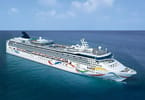Tourists are being summoned back to Christchurch as earthquake recovery workers leave and accommodation becomes available.
Christchurch and Canterbury Tourism chief executive Tim Hunter said about 7100 commercial beds were open – about 50 per cent of the pre-earthquake level.
“However, be that as it may we have frequently got vacancies here in Christchurch,” Hunter said.
The motel sector was reporting a large reduction in the number of earthquake-related workers in the city, freeing up beds that could be available to visitors.
“So we have been certainly a bit more active, particularly in Australia, suggesting that if people are coming to the South Island they spend at least a night in Christchurch,” Hunter said.
“It is small steps.”
The cordoned-off red zone in the city centre had shrunk to about eight blocks, opening up one-way streets and relieving traffic congestion.
Christchurch was getting back to normal quite well in terms of power and drinking water, with huge progress on repairing the sewage systems and improving roads.
“We’re not going out there with major marketing campaigns, it’s too early to do that, we’ve just got to see how we get through the winter,” he said.
“But I think come the start of summer, particularly if we can get access to three or four of those hotels that we know could be opened if we could get into the red zone, that would make quite a big difference.”
Care was needed with overseas markets not to try selling something that would not work for them.
Some large coach tour operators had moved to overnighting visitors elsewhere in the province.
“The reality is that we’re still not going to have enough hotel accommodation for the next summer … to bring them back,” Hunter said.
“When we get hotels back, we will get them back and we’re making sure [tourism industry show] Trenz is an opportunity to stay in touch and keep communicating and keep coming up with new innovative ideas to deal with what is not a short-term problem.”
Hunter did not see any problems for the summer in terms of Canterbury coping with the tourism load.
“We’re going to have to work very closely with inbound operators and international travel trade to say ‘well if we can’t get you rooms even for small groups we’ll find them nearby’.”
Richard Benton, owner and director of the International Antarctic Centre next to the airport, said the business had seen a shift towards local and New Zealand visitors.
The attraction reopened on March 26 and was marketing aggressively, with special deals for the Canterbury market to attract local visitors.
“That’s going down exceptionally well,” Benton said. “Our foot traffic from our local market is almost double what it would normally be at this time of the year.”
Normally the business saw about 75 per cent international and 25 per cent domestic visitors, which was now closer to 50:50.
However the total number was down about 15 per cent.
Revenue had seen a double digit drop and the business had made structural changes, including leasing out office space and laying off about 40 per cent of staff.
“We envisage this is only a short-term strategy we’re having to follow,” Benton said. “Certainly we think the future will be bright probably in around 18 to 24 months’ time we’d expect to see some quite strong recovery.”
It was time to put the message out for tourists to visit the city.
” If there’s one thing Christchurch needs now it’s a really strong marketing message from Tourism New Zealand and our regional tourism operators that ‘hey look Christchurch is open for business, there’s still some great things to see and do’.”
WHAT TO TAKE AWAY FROM THIS ARTICLE:
- “But I think come the start of summer, particularly if we can get access to three or four of those hotels that we know could be opened if we could get into the red zone, that would make quite a big difference.
- “When we get hotels back, we will get them back and we’re making sure [tourism industry show] Trenz is an opportunity to stay in touch and keep communicating and keep coming up with new innovative ideas to deal with what is not a short-term problem.
- The motel sector was reporting a large reduction in the number of earthquake-related workers in the city, freeing up beds that could be available to visitors.






















